You know what makes for a great “my first apartment” story? Grim memories of late-night arguments with your landlord, lost security deposits, the heat that never worked and countless other grisly memories of that hole-in-the-wall you lived in at 23.
What’s not so great? Actually living in that first apartment.
If you’re a recent or soon to be college grad and looking for your first place, you might not be clear on all the steps you need to take to line up an awesome apartment. This guide will walk you through what you need to do to snag your dream space and avoid those nightmare apartment scenarios.
In this guide you’ll find tips and answers to:
• Figuring out the apartment features and location to look for so you can narrow down your search
• When the best time is to look for an apartment so you’ll have the most options available
• What to take into account when setting your apartment budget
• How to know whether you’ll need a guarantor to secure an apartment
• How to begin your search and what red flags to look out for
• What documentation you’ll need with you when applying for an apartment
• How to read over a lease so you don’t miss anything in the fine print
Decide what apartment features really matter
Before you dive headfirst into hunting for your first apartment, create a list of everything you want. This may include particular neighborhoods, number of bedrooms, size of square footage and certain amenities. Lee Williams, a New York City real estate agent, suggests organizing and prioritizing your list into three key areas:
• Must-haves
• Nice to have, but can do without
• Dream apartment features
“Have a list. That way you’ll know when you’re ready to compromise and how your budget translates when you go out to experience a new space,” Williams says.
Pro tip: Depending on what city you’re looking in, consider neighborhoods that are slightly off the beaten path, or just outside of trendier areas. You might get more square footage for your money. Use a site like WalkScore to explore communities and find out what amenities are in walking distance.
Timing is everything in real estate
Start looking according to when you want to move in. Most move-in dates are on the first of the month, but some landlords may prefer or be willing to swing a midmonth start date.
“Anywhere from May through the end of August is the busiest season for rentals,” says Tanya Mahmood, chief operating officer and executive vice president of RLTY NYC. “It’s crucial to start looking a month in advance because you could run into the problem of showing up and not having an apartment in time to start a new job.” She adds not to look too far ahead because there will be fewer apartments available more than a month before your planned move-in date.
Pro tip: Don’t automatically assume you can move in a few days before your lease start date without incurring costs. Talk to your landlord before you book a moving truck or recruit friends to help. Also, since moving companies tend to be busiest on the first of the month, make your reservations as soon as possible to secure a spot if you’re moving at that time.
Make sure you can afford your rent … and everything else
You might have your first salary, but you don’t want to be working just to pay rent. Typically, landlords are looking for an annual income ratio to be 40 or 50 times the monthly rent (40 times monthly rent should equal 30% of your income). To make apartment living more affordable, consider bringing roommates into the equation. Some landlords will let roommates combine salaries to meet the income ratio, but not always.
When you’re looking for a place, don’t forget to factor additional living expenses into your budget. This could include monthly expenses for:
• Utilities (gas, heat, electric)
• Parking
• Storage
• Internet and/or cable
• Pet fees
• Building fees (water, trash, maintenance)
When you apply for the apartment, you may have to pay a processing or credit check fee. And don’t forget the security deposit, which is typically one month’s rent or less. You might also have to pay your first and last month’s rent upfront.
Your landlord might require renters insurance. This insurance protects your possessions in case of an emergency or catastrophe and provides liability coverage for personal injury or property loss. Even if your landlord doesn’t require renters insurance, it’s a good thing to have.
Pro tip: Your landlord will want a complete picture of your financial health when you apply. “Get one of the free credit reports you’re entitled to each year so you’re not surprised when a landlord runs your credit,” suggests Ravi Dehar, growth lead at Cozy.co, a service for landlords and tenants to screen applicants and pay rent. You can check your credit report through each of the three major credit bureaus: TransUnion, Equifax and Experian.
When you might need a guarantor
If you have no credit history, apartment history or have just started working, a landlord might require a guarantor, also called a co-signer, on your lease. A guarantor’s role is to take on your financial obligations if for some reason you can’t. Most guarantors for recent grads are parents. Landlords will require guarantors’ income to be 80 times the monthly rent, to ensure they can pay for their own bills as well as yours if you can’t afford your rent.
Pro tip: Make sure you have your guarantor in tow or at least have his or her documentation ready when you’re applying.
Start your search and watch out for these red flags
If you’re strapped for cash, then going online is the way to go. For most, that means an apartment hunting site such as PadMapper and the ubiquitous source for the online search, your local Craigslist. Melanie Siben, a New York City real estate agent, suggests maintaining a healthy level of suspicion throughout your online search. “Not all apartments are what they seem and not all are real,” she adds. These are all red flags:
• Too good to be true usually is. If an apartment is listed in a great neighborhood, with large square footage, lots of amenities and all at a cheap price, it’s probably a fake. Compare similar apartments in the area.
• Extremely high fees paid upfront. “Sometimes you’ll be asked to pay everything including the security deposit and finders fee upfront before you have any lease or even seen the apartment,” Siben says.
• Landlord doesn’t ask for your credit score and other necessary background materials. “Every landlord wants to verify you’re gainfully employed and that you don’t have a criminal history,” Siben says.
• When you’re getting too much pressure to hurry up, sign and pay. “You can tell when someone wants a quick buck,” Siben says.
• A listing says, “I’m out of the country, but…” The landlord or his agent isn’t available to show you the apartment until after you send the money. “You need to see the apartment before you give any money,” Siben says. “If that’s not an option, make sure you’re dealing with a reputable agent or company.”
If you hire a real estate agent, you can find places that are unlisted and you’ll have someone to do the negotiating for you. The downside is you’ll pay a fee or commission, often up to a full month’s rent or 15% of an entire year’s rent.
Pro tip: To verify a landlord owns the property, you can look up an apartment’s tax records at your local assessor’s office to make sure names match up.
Be prepared to jump on an apartment
Even if you find your dream apartment, it may be someone else’s two-bedroom utopia too.
“It’s extremely competitive for young people. They’re looking for the cheapest, safe place possible and they’ve got tons of competitors. You have to act fast,” Siben says.
Before you visit a place, have everything you might need to lock it down quickly on hand, including:
• Recent paystubs or a note of employment validating your salary. Your letter must be officially signed and on company letterhead.
• Recent bank statements and/or a recent tax return
• Your Social Security number for a credit check
• Photo identification
• Vehicle information, including a license plate number, make and model number
• Your checkbook to pay for application fees and security deposit
• Contact information for references
If the application asks for a reference from a previous landlord, don’t think you’re out of the running if you’ve never lived on your own. “Landlords have seen everything — they know if you just graduated and just got your first job that you either lived at home or in dorms,” Williams says.
Pro tip: If you’re certain you want an apartment, apply on the spot. If you wait too long, you may miss out.
Most landlords will give you a standard lease agreement to sign. But the lease riders, or clauses, are the fine print you should examine the closest.
“It’s like anything else: You need to read the small print,” says Carol Stuckey, account manager at Apartment Locator in Oklahoma City. “You need to know the length of the lease and if you don’t fulfill the lease what the consequences are. In the state of Oklahoma they can charge you the full amount of the lease if you move out early.”
Certain add-ons such as a cleaning fee after you move out are becoming more common, Williams says. He adds, “Some landlords may have had a bad experience with frat guys who moved into a beautiful four-bedroom. They want to make sure the property is returned to a state that it was originally in and so future renters will have a clean environment.”
Before signing the lease, point out any concerns you might have. If you make any verbal agreements at this time, get them in writing.
Pro tip: When you move in, submit a report and take photos of any prior damage. You don’t want to be held responsible for a literal hole in the wall that was already there when you moved in.
Final takeaway
Knowing how to approach finding your first apartment gives you the power to make the best possible decision. You’re going to have pitfalls and plenty of memories to collect along the way — this is still renting, after all. Just remember: The great thing about your first apartment is that it will always be your first.
More from NerdWallet:
• Your First Post-College Apartment Checklist
• 7 Tips for Getting an Apartment Without Credit
Anna Helhoski is a staff writer at NerdWallet, a personal finance website. Email:[email protected]. Twitter: @AnnaHelhoski.
This article originally appeared on NerdWallet.
If you’re looking for your first apartment and want to work with agents who can guide you through the process, The Rental Girl is a boutique leasing and sales agency that has agent specialists in each neighborhood in Los Angeles. Pick the neighborhood you want to live in, check out our current listings, and get in touch with an agent to set up an appointment!
Happy Hunting!
The Rental Girl









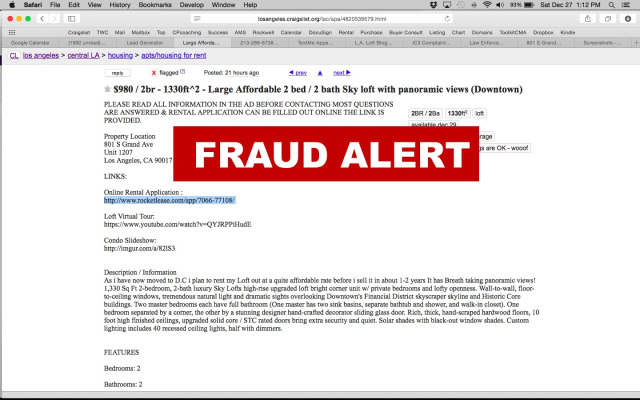

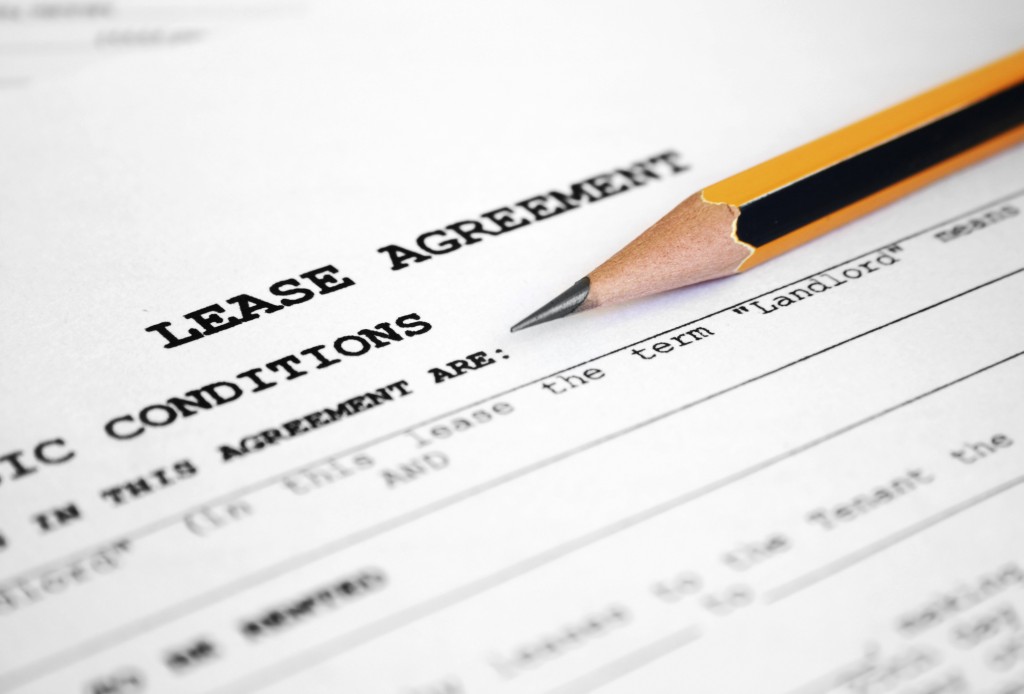





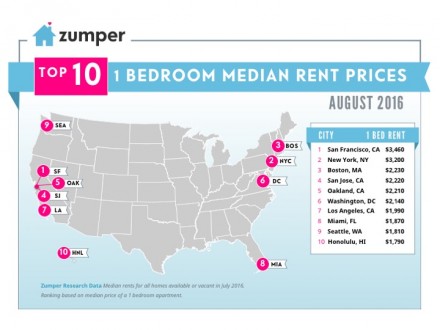





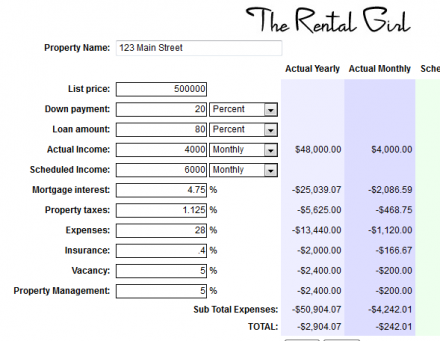
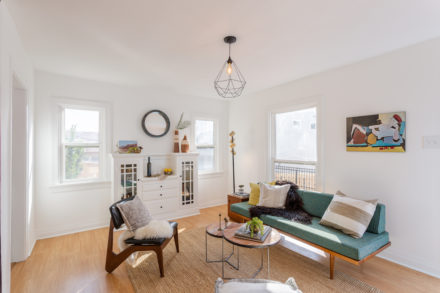
You advice for looking through the fine print of an apartment lease is something that I need to do now that I’m looking for my first apartment. There have been a few times when I’ve signed a contract without reading the little details, and I always end up wishing that I had known about those things before signing anything. That will help me save a lot of money on my first apartment, so I’ll make sure to know about any additional fees that I might have to pay for.
These are some great tips, and I appreciate your advice to take pictures and report any damage you find when moving into an apartment. I’m going to be moving out to college next spring, so I’m starting to look for an apartment to move to. I’ll definitely make sure to take pictures of any damage I find so I have proof that I was not responsible. Thanks for the great post!
I like how you clarified the difference between what you need, want, and would like. That is super important in all areas of life, especially where money is concerned. It thinks that everyone should try to find the right title manager if you need one. I would think that they are really helpful and take the stress away from staying in a strata apartment, or any apartment for that matter.
In your article, you stated that depending on what city you’re looking in, consider neighborhoods that are slightly off the beaten path, or just outside of trendier areas and you might get more square footage for your money. My cousin and his wife have been trying to find their first apartment and someone suggested that they should hire a real estate agent. I wonder if there are certain types of apartments that might be better for first time buyers.
Hi Derek, LA is one of the highest rental markets in the country and so it may be beneficial for your cousin to consider buying. If they are first-time buyers our lending partner LendLA specializes in working with first-time home buyers and making the experience as painless as possible. Our Sales Agents are also super accommodating at helping buyers navigate their first-time in the real estate waters. Encourage your cousin to check out our Sales Team blog http://www.trgrealtyinc.com to find an agent and get more answers. Happy Hunting!
I like how you mentioned the importance of being ready to jump on an opportunity to rent. I’m going to be moving out to college at the end of this summer, so I’m starting to look for a place to live. I’ll definitely make sure to check the availability of any places that are appealing to me regularly so I can hop right on it if one opens up.
I feel like all of the best apartments are always taken really quickly. Your tip about showing up with all of your information might help with securing the place quickly. I would hate for someone else to beat me to the punch because I wasn’t completely prepared.
That’s cool that you can verify if a landlord owns property by looking up an apartment’s tax records. I’ve been looking to find apartments for sale and want to find a place with a landlord that is reliable. Also, thanks for the tip to be ready to jump on an apartment if you feel like it’s right.